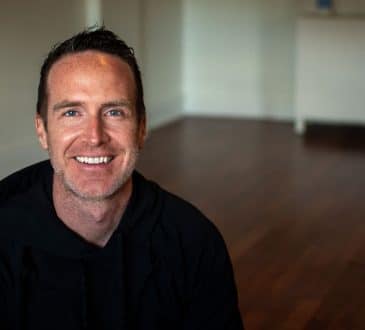How to (Really) Build Cross-Cultural Competence from Education Abroad Experiences

With international travel finally recovering after the impact of the COVID pandemic, many college students are planning to take part in education abroad experiences, whether study abroad, alternative Spring break, international co-op, and the like. This is good news: an education abroad experience is one of the best ways for students to gain the cultural awareness and international experience necessary for success in today’s global economy.
While education abroad has tremendous developmental potential, the reality doesn’t always match the promise. Many students end up spending most of their free time with people from their home country or communicating with friends and family back home via social media.
Breathing the air of another country isn’t enough to build cross-cultural competence.
Education abroad has the potential to be a transformative life experience. When students are open to — and interact with — people from different countries, they gain new perspectives and develop a deeper understanding of the world around them. Learning how to communicate successfully with people from different cultures teaches self-reliance and self-confidence and develops skills that employers are increasingly seeking.
As a psychologist who studies cross-cultural communication and global leadership, I would never advise students embarking on education abroad programs to disavow their friends or family back home. However, setting limits on social media use is a helpful practice and I recommend they remember why an international experience was desired in the first place: to learn about a new culture, to build career skills, and to have an adventure. Those goals can’t be achieved while scrolling friends’ social media feeds.
Here are three suggestions to make the most out of any education abroad experience.
- Push beyond your comfort zone
Upon arrival in a host country, students tend to gravitate toward fellow classmates from their own country. While this normal, time with compatriots shouldn’t define the experience. After taking some initial time to acclimate, students need to fight against the pull toward familiarity. This will pose a struggle because our primitive brain doesn’t appreciate novelty. Unless we consciously move away from familiarity, we subconsciously move toward it. While it’s easier to spend time with people who are like you, a growing body of research suggests that we learn the most when we intentionally step outside our comfort zone.In the context of education abroad, this means learning how to find those situations that provide opportunities for peer-level interaction. The easiest way is to focus on an interest and get involved in activities related to that interest, such as joining a local rugby team, the school singing club, a local running group, or the company’s volunteer program. Pursuing a personal interest enables you to stretch outside your comfort zone from a familiar base.My personal experience of moving out my comfort zone was born of necessity. I did my study abroad program in Rome in the fall of 1987. After Black Monday, I discovered I had half the amount of money in my bank account than I’d had the day before. I called my parents in Buffalo, New York, in tears. Instead of sympathy or money, they offered advice: Get a job. So, I did. I started tutoring Italian children, which forced me to interact with Italians on various levels. My language skills improved, I grew close to some Roman families and my family in Calabria, and I made Italian friends — even an Italian boyfriend. From these interactions, I learned about the Italian culture and started appreciating the country from the inside.
- Learn how to observe
To be an effective communicator in a host country, observe others who are worth emulating. What does class participation look like? What kind of language do people use when speaking? What’s their tone of voice? To what extent do they defer to authority? These answers will provide clues on how to adapt behavior when needed.Another way to learn is by asking other people. Ask a friend, mentor, or coach for advice about how to be more effective as a student. The more you learn about what’s perceived as successful communication in the host country, the more integrated and adjusted you become — and the more your comfort zone widens. - Be true to yourself
Learning how to communicate across cultures will likely require some adjustments on your part. Some changes will be subtle — altering how you inflect your voice at the end of a question, say, or becoming more (or less) formal with your body language when speaking with someone in authority.Sometimes, though, the change required is more dramatic. In that case, decide the extent to which you’re willing to modify your communication style to conform to your host culture. Experiment. There may be ways you can tweak your behavior to fit the culture and still maintain your values and personality.Here’s an example: When my research assistant, who is from China, first started working with me, he was very formal. He never used my first name, and always called me “Professor.” He was rarely willing to offer input. Chinese culture tends toward deference to show respect for hierarchy. But after several months, I noticed he began calling me Paula. He also was more forthcoming with opinions. I asked him what changed and he said he grew to understand that, although I was a person in a position of authority, I needed his professional assistance. Because he held authority in such high regard, he recognized he should alter his behavior to provide the greatest help he could. He adhered to his value while using different behavior.
Developing cross-cultural competencies isn’t a given just because someone has an educational experience abroad. It requires meaningful connections with people from the host country. Communicating across cultures isn’t always easy, and building relationships takes effort in every country and culture.
To prepare yourself or your students to get the most out of a global experience, try the free online tool, myGiide to access self-assessments on cultural values and competencies, comparisons of values with other countries, and tips to bridge the gaps with people from other cultures.
Written by Dr. Paula Caligiuri.
Have you read?
Richest Actors In The World And Their Net Worth, 2023.
Richest Tennis Players In The world And Their Net Worth, 2023.
Study: Music successful CEOs and c-level executives listen to when they want to be more productive in 2023.
Which are the healthiest countries in the world for 2023?
Best Business Schools In The World For 2023.
Bring the best of the CEOWORLD magazine's global journalism to audiences in the United States and around the world. - Add CEOWORLD magazine to your Google News feed.
Follow CEOWORLD magazine headlines on: Google News, LinkedIn, Twitter, and Facebook.
Copyright 2025 The CEOWORLD magazine. All rights reserved. This material (and any extract from it) must not be copied, redistributed or placed on any website, without CEOWORLD magazine' prior written consent. For media queries, please contact: info@ceoworld.biz








